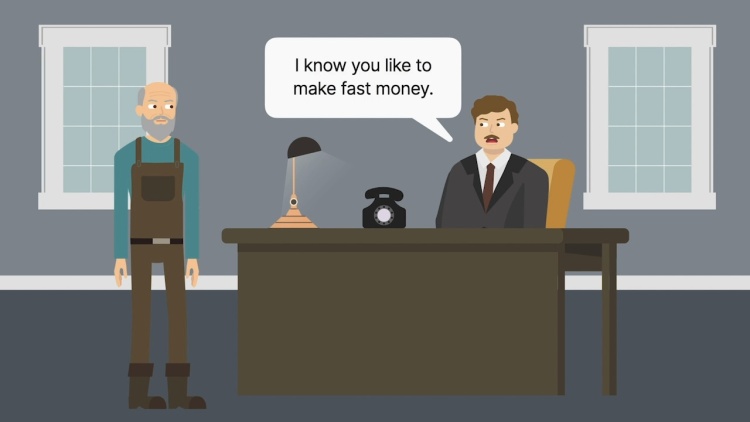Iowa Supreme Court Board of Professional Ethics and Conduct v. Jones
Iowa Supreme Court
606 N.W.2d 5 (2000)
- Written by Samantha Arena, JD
Facts
In 1995, Leon Currie contacted attorney Oscar Jones (defendant), telling Jones that he had negotiated with the Nigerian government to build a pipeline. Currie told Jones he needed to raise an additional $5,000 dollars to pay a risk-insurance premium before he could collect the $25.3 million owed to him. Currie asked Jones to secure a lender, and told Jones that if Jones were successful, Currie would purchase a $2 million annuity for him. Jones did not attempt to verify Currie’s representations. Jones tried to secure the loan from several American banks, all of which refused, citing serious risk concerns in transactions involving the Nigerian government. Several individuals also declined to provide the loan. In May 1997, Jones contacted Delbert Jones, a former client of Jones’s. Jones told Delbert that Currie would repay him $15,000 within 30 days if Delbert provided the $5,000 loan. Jones did not, however, tell Delbert that a number of banks and individuals had already declined to loan the money because of the risk involved. Jones also did not inform Delbert of Currie’s promise to purchase Jones an annuity if he successfully secured a lender. Jones represented to Delbert that he could trust Currie. Based on Jones’s statements, Delbert borrowed the money from his credit union and forwarded it to Currie. Jones then signed a promissory note payable to Delbert on Currie’s behalf. Delbert never received the money promised. After receiving two extensions on the loan, Delbert paid it off plus interest. The Iowa Supreme Court Board of Professional Ethics and Conduct (plaintiff) charged Jones with violations of the Iowa Code of Professional Responsibility. The grievance committee recommended a formal reprimand of Jones. The Iowa Supreme Court reviewed the case to determine appropriate disciplinary action.
Rule of Law
Issue
Holding and Reasoning (Per curiam)
What to do next…
Here's why 907,000 law students have relied on our case briefs:
- Written by law professors and practitioners, not other law students. 47,100 briefs, keyed to 996 casebooks. Top-notch customer support.
- The right amount of information, includes the facts, issues, rule of law, holding and reasoning, and any concurrences and dissents.
- Access in your classes, works on your mobile and tablet. Massive library of related video lessons and high quality multiple-choice questions.
- Easy to use, uniform format for every case brief. Written in plain English, not in legalese. Our briefs summarize and simplify; they don’t just repeat the court’s language.





